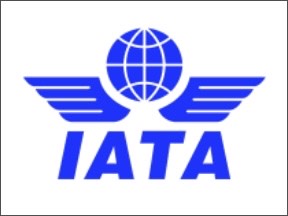To further meet the demand for its specialist aerospace logistics services award-winning B&H Worldwide has moved its New Zealand operation to a new on-airport site at Auckland Airport. The company has been operating in the country since 2012. Now located in the Airport Industrial Precinct, a highly desirable industrial area, the B&H team will be situated alongside some of the world’s largest freight and logistics companies, and will have easy access to all facilities at the largest and busiest airport in the country. In addition to warehousing and offices, the new site also has ample yards for devanning. Alongside manned 24/7 global AOG and aerospace logistics, the experienced B&H team in Auckland led by Country Manager, Lee Hedges will also offer specialist Dangerous Goods services. Says B&H’s Head of Operations, Oceania – Colin Kaltner: “Auckland is becoming an important forward stocking location for a number of our customers and the move to this on-airport site enables us to cater to their ongoing requirements. And of course, they will be able to have global visibility of their inventory through our unique, cloud-based track and trace platform FirstTrac.” The new operation is located at: B&H Worldwide Unit D, 6 Percival Gull Place Mangere Auckland 2022 New Zealand
Read More »InstaFreight closes largest funding round in its history
Berlin-based log-tech start-up InstaFreight successfully closes Series B funding round of more than US$ 40 million. With the new investment, the company will make supply chains strained by the pandemic and Ukraine war more resilient. Using its digital business model InstaFreight is making more capacity available and will handle land transport more efficiently. InstaFreight, one of Europe’s fastest growing log-tech start ups, is announcing the successful closing of a $ 40 million Series B funding round. The financing round is led by Heliad and the European Investment Bank (Europäische Investitionsbank [EIB]). All previous investors of InstaFreight have also participated in the new financing round. The commitment of the investors and the current events in logistics and beyond show the outstanding potential that lies in an efficient and sustainable shaping of European land transport. With its digital solutions, InstaFreight offers efficient and digital transport services as well as transport management solutions – holistic digital logistics concepts for industry and trade that are unique in Europe in terms of their simplicity and transparency. “The truck logistics market is vast, highly fragmented and still dominated by non-digital players and overall inefficient, often paper-based, processes. InstaFreight, through its freight forwarding solutions and Transportation Management product, has seen tremendous growth over recent time, having made the company an integral part of this essential industry. Its fully digital and holistic platform solution empowers carriers and shippers equally. We are very excited to create together with the stellar team behind Philipp Ortwein and Maximilian Schäfer and among a strong investor base, a market leading solution to improve the logistics industry”, says Falk Schäfers, CEO of Heliad. EIB-Vice President Ambroise Fayolle emphasizes: “Transportation still remains a major obstacle …
Read More »FreightFox partners with Yale to develop index-based freight contracts
Logistics platform FreightFox recently announced a partnership with Yale researchers to develop a responsive index-based pricing model that facilitates dynamic transportation decisions. The new freight contract and pricing model will take into account the most important factors that influence truck placement, such as seasonality in industry and agriculture, significant skewness in month and dispatches, and limited trucking inventory. The contract model will be designed to ensure best placement of trucking fleets at different times to minimise movement disruptions and maximise truck dispatch fulfilments. This will not only keep operations flowing but also support better visibility, allowing manufacturers to plan shipments better and have contingency options in case of failures elsewhere along the supply chain. At the same time, both manufacturers and transport partners can be assured of fair pricing. With reference to the partnership, Dr Ryan, Assistant Professor of Economics, Yale University and an affiliate of the Economic Growth Centre said: “Failures in shipping and trade are a major concern for firms in India, and offering improved contracts could make shipping more reliable, lower-cost, and raise people’s incomes. The intention of the project is to innovate in new contracts and see if that reduces the costs of trade.” “We are delighted to collaborate with researchers at Yale to develop such innovative freight contracts and are committed to deliver superior logistic contracting methods by leveraging technology, data and the know-how available at Yale,” said Nitish Rai, CEO and Co-founder of FreightFox. A memorandum of understanding guiding the research was signed in January 2022. Given the fragmented nature of the Indian economy, manufacturers often encounter logistical issues when it comes to procurement and freight contracts. Most freight contracts are static one-year affairs …
Read More »TIACA elects Kamesh Peri, CEO, CDCTM, to the Board of Directors
The International Air Cargo Association (TIACA) has elected Kamesh Peri, Chief Executive Officer, Celebi Delhi Cargo Terminal Management as their Board of Directors in order to broaden the Board’s sector knowledge and efficiently serve the air cargo industry. Kamesh brings more than 30 years of senior leadership experience in the aviation industry encompassing South Asia, the Middle East, Europe, Africa, and North America in various geographies. In his previous stint he has been with reputable organisations like Lufthansa Cargo AG & Menzies Aviation and as a consultant for large clients in the aviation business, providing advisory, strategy & implementation. Commenting on the development, Mr Kamesh Peri, CEO, Celebi Delhi Cargo said, “I am thrilled to be given the responsibility of being a part of the TIACA Board of Directors. TIACA’s vision is a safe, profitable and united air cargo industry that embraces modern technologies and practices to sustainably and fairly serve trade and social development worldwide. Through collaborative efforts, I look forward to helping shape TIACA’s vision and promising future.” TIACA has also appointed Kai Domscheit, CHI Handling; Dan Sheehan, UPS; Tushar Jani, Cargo Service Center India; Roos Bakker, Schiphol Airport and Massimo Roccasecca, Verona-Brescia Airport as board members in order to bring their perspective and experience across the industry sectors to ensure every sector’s view is well represented within the group. Çelebi has been in India for more than a decade now and has been successfully carrying out comprehensive ground handling operations at the major airports of the country – Mumbai, Delhi, Bangalore, Hyderabad, Cochin, Ahmedabad and Kannur, and is planning to expand its operations into other airports. In addition to the ground handling services, the company also started …
Read More »IMO and WISTA launch Maritime SheEO Leadership Accelerator Programme 2022
The International Maritime Organization (IMO), in collaboration with the Women’s International Shipping & Trading Association (WISTA International) and Maritime SheEO, is delighted to announce the launch of the Maritime SheEO Leadership Accelerator Programme 2022. The programme was launched on Tuesday March 8, 2022 during a live webinar focussing on “The Next Generation Of Women Leaders In Engine Rooms, Bridges and Board Rooms”. The webinar also marked the UN International Women’s Day 2022, which this year is being held under the banner of “Gender Equality Today For A Sustainable Tomorrow” and a key message to #BreakTheBias. The Maritime SheEO Leadership Accelerator Programme launches at a time when the industry recognises that it needs more women leaders. It was specially curated and designed to provide management knowledge and skills to help women in the maritime industry move into leadership roles. Kitack Lim, Secretary-General of the International Maritime Organization addressed the webinar and said that the maritime industry is working to transition to a more sustainable future. He acknowledged that diversity in leadership is good for business and that woman leaders are vital for the future of maritime. The IMO has been working to facilitate gender equality in maritime since 1988 and is committed to achieving the UN Sustainable Development Goals, including Goal 5 to achieve gender equality and empower all women and girls. The IMO gender and capacity-building programme is dedicated to helping achieve “Training-Visibility-Recognition” of women in maritime. During his speech, Lim also mentioned the 18th of May, when the IMO celebrates the inaugural International Day of Women in Maritime. The day will provide an annual platform to recognise women in the industry, promote the recruitment, retention and sustained employment of …
Read More »Tata Steel transports finished steel in LNG-fuelled trailers in India
Tata Steel flagged-off its first batch of liquefied natural gas (LNG) powered vehicles to transport its finished steel products at a function in Nagpur on March 5, 2022. This initiative by Tata Steel is part of its ongoing efforts towards a carbon-neutral future. Under the guidance of Tata Steel’s logistics department, its vendor partners Ashmi Logistics and Shreyas Associates deployed two vehicles each for local movement of the products in Nagpur. The vehicles aim to ferry around 1,000 metric tonnes of product. LNG vehicles don’t emit sulphur dioxide and their NOx and greenhouse gas emissions are up to 85% lesser than vehicles that run on other fuels. Over the last three decades, Tata Steel has made concerted efforts in various areas, including supply chain, to mitigate climate change and manage associated risks. Tata Steel launched its Responsible Supply Chain Policy in FY20 which specifies “Environmental Protection” as an integral sustainability principle for all its supply chain decisions and processes. In February this year, Tata Steel became the first Indian steelmaker to transport goods using inland waterways from the Haldia Port in West Bengal to Pandu Port in Assam, reiterating its commitment to building a sustainable future. In July 2021, the Company pioneered the use of electric vehicles to move finished goods from its erstwhile Tata Steel BSL’s Sahibabad Plant and Pilkhuwa Stockyard in Uttar Pradesh. Tata Steel also became the first steel producer in the world to join the Sea Cargo Charter to reduce ‘Scope 3’ greenhouse gas emissions in ocean trade last year. The Company has been rated “A” and is listed as 2021 ‘Supplier Engagement Leader’ by CDP, a global environmental non-profit charity, for its initiatives to reduce …
Read More »MoD allocates land to Pune Airport for cargo operations
Earlier this week, the Ministry of Defence (MoD) announced that a 13 acre defence land parcel will be allotted to the Airports Authority of India (AAI) for Pune International Airport. The airport currently has only 500 sq ft of space for its cargo operations. The land parcel will be given from the BSO yard and the CWE office, and will include a 2.5 acre land parcel allotted earlier. The decision comes at the right time considering that India will soon resume its scheduled international flights. We have received a letter from the MoD and now, a committee will be formed. The committee will check the inventory of the defence land which is going to be handed over so that the same type of inventory can be allotted to another land before the handover takes place.” said, Santosh Dhoke, Director, Pune International Airport The currently limited space occupied by the Airport for cargo services limits its international as well as domestic cargo operations, putting it far below the other airports in India. The Airport authorities are also planning to develop an airport apron on the said land, which is being touted to bring a boost to the overall development of Pune Airport. “The 13 acre of land will be occupied by national and international cargo and an apron will be created for the air craft. Right now, we cannot say exactly how much square feet of land we will have for cargo but expansion is a must,” said Dhoke. Pune International Airport, being close to the economic capital of India, Maharashtra, has seen a rise in the number of number of exports as well as the volume of exports in recent …
Read More »BLR airport leads in temperature controlled cargo solutions
BIAL has been sprinting towards becoming a runway for excellence and innovation, establishing the Kempegowda International Airport, Bengaluru (BLR Airport) as India’s leading airport for perishable shipments since late 2021. During FY2020-21, the BLR Airport processed 48,130 MT of perishables, including 28,182 MT of poultry and 1,296 MT of flowers, as per the APEDA database. The top among 46 international destinations, for a whopping 31% of the country’s total perishable shipments, were Doha, Singapore, London and Muscat. “Perishable cargo has been one of the major growth drivers for BLR Airport. Our cargo infrastructure, powered with technology, provides rapid distribution of perishable cargo, making BLR Airport the preferred cargo airport in South India. Our aim is to create an environment that enables our cargo partners to introduce new initiatives and facilities that cater to constantly evolving demand.” said, Satyaki Raghunath, Chief Strategy and Development Officer, BIAL The favourable developments at the BLR Airport are a result of the efforts of a number of organizations. The Airport gets 24×7 assistance from Indian Customs, and the Plant Quarantine Office in Bangalore, the Agricultural and Processed Food Products Export Development Authority (APEDA) & the Karnataka State Agricultural Produce Processing and Export Corporation Limited (KAPPEC) help in faster movement. The APEDA acts as the link between perishables’ exporters and the BLR Airport to facilitate seamless transportation of cargo. They have also been instrumental in the promotion of export-oriented production, improving packaging standards, training in various aspects of perishable industries and assisting perishable exporters with various financial assistance schemes.
Read More »Sanctions due to war see ships & cargoes pile up at European ports
Following Russia’s invasion of Ukraine two weeks ago, the global seaborne commodities trading map is still being rebuilt at a breakneck speed. The US announced a ban on Russian oil and other energy imports. In remarks from the White House, President Joe Biden declared, “We’re prohibiting all imports of Russian oil, gas, and energy.” “This means Russian oil will no longer be accepted at US ports, and the American people will give Putin’s war machine another heavy blow.” This will only apply to energy imports into the United States. The United Kingdom plans to enact such a prohibition “before the end of the year.” Other European allies are not expected to join the US in the ban, at least for the time being. German chancellor Olaf Scholz said that although Berlin supported tough measures against Moscow, Russian energy supplies remained “essential” for daily life in Europe. Russia exported 114.2 million tonnes of crude oil to the European Union in the same year, accounting for 53.9 percent of Russia’s seaborne crude exports, plus another 40 million tonnes through pipeline. It sent 4.3 million tonnes of clean oil products to the United States last year, accounting for 6% of Russia’s seaborne clean product exports. Russia sent 41.9 million tonnes of clean oil products to the EU in the same year, accounting for 57.9% of Russia’s seaborne clean product exports. The European Commission outlined plans to rid the continent’s dependency on Russian natural gas by two-thirds by the end of the year, in a plan called REPowerEU. Meanwhile, the war and subsequent sanctions are seeing ships and cargoes pile up at ports across Europe. Leading liners – with the notable exception of COSCO …
Read More »IATA announces slow air cargo growth in January “22
The International Air Transport Association (IATA) released data for global air cargo markets showing slower growth in January 2022. Supply chain disruptions and capacity constraints, as well as a deterioration in economic conditions for the sector dampened demand. Demand growth of 2.7% in January was below expectation, following the 9.3% recorded in December. This likely reflects a shift towards the more normal growth rate of 4.9% expected for this year. Looking ahead, however, we can expect cargo markets to be impacted by the Russia-Ukraine conflict. Sanction-related shifts in manufacturing and economic activity, rising oil prices and geopolitical uncertainty are converging. Capacity is expected to come under greater pressure and rates are likely to rise. To what extent, however, it is still too early to predict,” said Willie Walsh, IATA’s Director General
Read More » Cargo Breaking News
Cargo Breaking News








